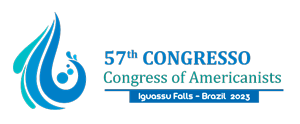| Dados do autor | |
|---|---|
| Sua instituição | Columbia University |
| País de origem do autor | Brasil |
| Dados co-autor(es) [Máximo de 2 co-autores] | |
| Email hidden; Javascript is required. | |
| Nome completo | Anaxsuell Fernando DaSilva |
| Sua titulação | Pós-Doutorado |
| Titulação | Doutor |
| País de origem do co-autor | Brasil |
| Instituição | Universidade Federal da Integração Latino-Americana Unila |
| Proposta de Paper | |
| Área Temática | 11. Estudos de Fronteiras |
| Grupo Temático | FRONTERAS DE INTERCULTURALIDAD EN PROCESOS DE MIGRACIÓN Y MOVILIDAD EN LO URBANO DE LA INTEGRACIÓN REGIONAL |
| Título | Internal displacement, integration and US immigration policy in relation to Latin American migrants (2022-2023) |
| Resumo | The United States is currently experiencing what the press and various sectors of the government call an "immigration crisis." The arrival of considerably large groups of migrants traveling in caravans through Central America is by no means a recent phenomenon, however, a series of displacements organized by state agents within the country is changing the way these individuals are inserted in the United States. Since mid-2022, Republican governments such as those of the states of Texas and Florida began to pay for buses dedicated exclusively to transporting asylum-seeking migrants, mostly from Venezuela and Central America, from the areas through which they enter the country, markedly the south, to cities in the northern United States deeply identified with the Democratic party, specifically New York and Washington DC. This communication seeks, from a direct observation carried out in the United States of some points of entry and arrival of these Migrants in the country, namely, the border city of El Paso, in Texas and New York, to reflect on the role of the public controversy around these migrants, the constant processes of displacement, dehumanization and violation of human rights through which they pass, and the intense situation of physical and health insecurity to which they are subjected. In addition, we are interested in discussing the fostering processes that these subjects go through, considering in particular the role that language plays in the dynamics of integration (or non-integration) in the care of Latin American migrants recently arrived in the United States. |
| Palavras-chave | |
| Palavras-chave |
|
